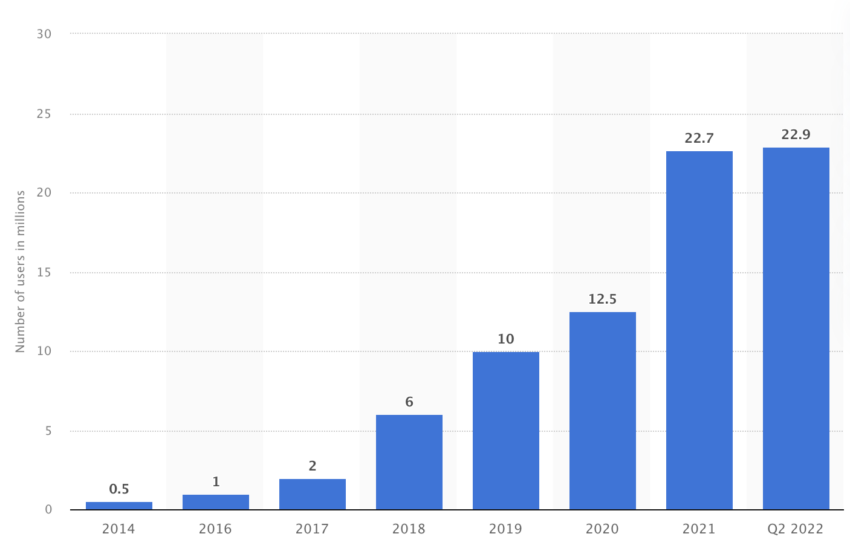Initially gaining prominence as a stock-trading platform, Robinhood is making a serious foray into decentralized finance (DeFi) by adding Ethereum swap capabilities to its wallet.
This strategic move aims to increase Robinhood Wallet’s functionality as it rapidly evolves from a trading app into a more complex financial ecosystem.
Robinhood Supports Ethereum Swaps
Launched nearly six months ago, Robinhood Wallet has gained significant traction with hundreds of thousands of users across more than 140 countries.
Despite its late entry into the crowded crypto wallet space, Robinhood appears to have caught up swiftly. Initially, the platform supported Polygon and Ethereum networks for custody, sending, and receiving crypto assets.
However, the new update now supports Bitcoin and Dogecoin, with Ethereum swaps being its most talked-about feature.
The latest Ethereum swap feature stands out for its ease of use. Unlike most other wallets, Robinhood allows users to swap Ethereum-based tokens without the need to hold ETH. Network fees for the swaps are automatically deducted from the tokens users hold, making it an enticing option.
Yet, this move raises questions about Robinhood’s broader strategy. Is the company aiming to simplify and democratize access to DeFi, or does it attempt to capitalize Ethereum-based tokens?
Read more: How to Buy and Sell Crypto on Robinhood: A Step-by-Step Guide
The General Manager of Robinhood Crypto, Johann Kerbrat, indicates the former. He stated that the wallet aims to reduce complexities and barriers to entry for everyday users.
“With Robinhood Wallet we stripped away many of the complexities of DeFi and the broader Web3 ecosystem, and reduced some of the challenges and barriers to entry for everyday people. We’ve been really encouraged by the adoption so far, and are excited to keep building for our customers around the world as we ship new features and expand support for new networks and tokens,” Kerbrat said.
While Robinhood has made several other additions to its crypto wallet, including a Web3 browser for dApps and a fiat onramp for direct crypto purchases, the focus on security remains steadfast.
Read more: Coinbase vs. Robinhood: Which Is the Best Crypto Platform?
Users are required to authenticate their identity through Face/Touch ID or a custom PIN. They are also prompted to set up a secret recovery phrase, which is crucial for restoring their wallets.
Robinhood does not have access to this seed phrase, ensuring that users maintain full control over their crypto assets.
The post Robinhood Goes DeFi, Enables Ethereum Swaps appeared first on BeInCrypto.
